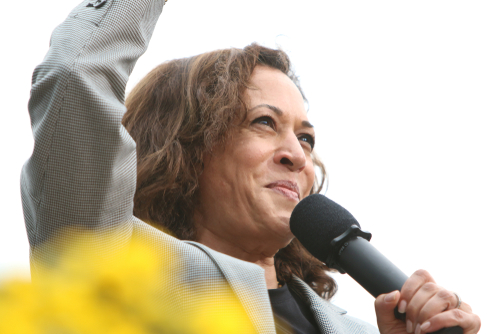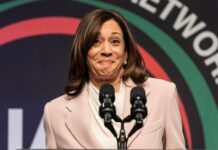
In an era of unprecedented political division and uncertainty, American voters are expressing significant doubts about President Joe Biden's ability to serve a full second term, should he be re-elected. A recent poll has shed light on these concerns, revealing a nation split on the question of Biden's longevity and fitness for office, with a considerable portion of the electorate apprehensive about the potential for Vice President Kamala Harris to assume the presidency.
The poll, as reported on April 2nd, 2024, indicates that only 38% of likely voters are confident that Biden would survive a second term, while 33% express doubts about his ability to make it through. This skepticism is not unfounded; if re-elected, Biden would be 86 years old by the end of his term, with many fearing his mental faculties could be significantly diminished by then. The implications of this are profound, not least because it would mean Kamala Harris stepping into the role of Commander-in-Chief.
Do you imagine Kamala Harris has President that what you will get next years if Biden is re-elected!! https://t.co/TPD2u1AR02
— Andre Ladouceur (@LadouceurAndre) March 29, 2024
Harris's ascendancy to the presidency, under such circumstances, is fraught with controversy and concern. Despite her historic position as the first female Vice President, her popularity—or lack thereof—among the American public is a contentious issue. Critics argue that her unpopularity, coupled with allegations of Democratic election fraud, casts a shadow over the legitimacy and desirability of her potential presidency.
Should Biden become incapacitated or pass away during a second term, Harris would be eligible to run for two additional full terms, thanks to the provisions of the 22nd Amendment. This scenario has alarmed those who view her as unsuitable for the nation's highest office, with fears that she could potentially remain in power until January 2037 under certain conditions.
Kamala Harris was trash long before she became the trash vice-president. pic.twitter.com/h5OYreEXZF
— Mike Engleman🇺🇲 (@RealHickory) March 30, 2024
The root of Biden's electoral vulnerability, however, lies in perceptions of his age and mental fitness. Viral social media clips showcasing Biden's gaffes, stumbles, and slurred speech have solidified a narrative of incapacity and frailty. This perception is not easily countered by public appearances or speeches, no matter how fiery or coherent they may be. The enduring image of Biden as too old and too weak for the presidency poses a significant challenge to his re-election campaign.
Voters' concerns about Biden's fitness for office starkly contrast with their views on former President Donald Trump. According to the same poll, 54% of respondents believe Trump would survive a full term if re-elected, highlighting a stark difference in public confidence between the two leaders.
As the possibility of a Harris presidency looms large, the debate over Biden's viability and the implications of a transfer of power becomes increasingly urgent. The American electorate is clearly divided, not just on policy issues, but on the fundamental question of leadership stability and succession. As the 2024 election approaches, these concerns will undoubtedly play a critical role in shaping the political landscape and the future direction of the United States.
In conclusion, the prospect of a Kamala Harris presidency, precipitated by concerns over Joe Biden's age and health, represents a pivotal moment in American politics. Voters are faced with the task of weighing these concerns against their policy preferences and party loyalties. The outcome of this deliberation will have lasting implications for the nation, its governance, and its place on the world stage.












